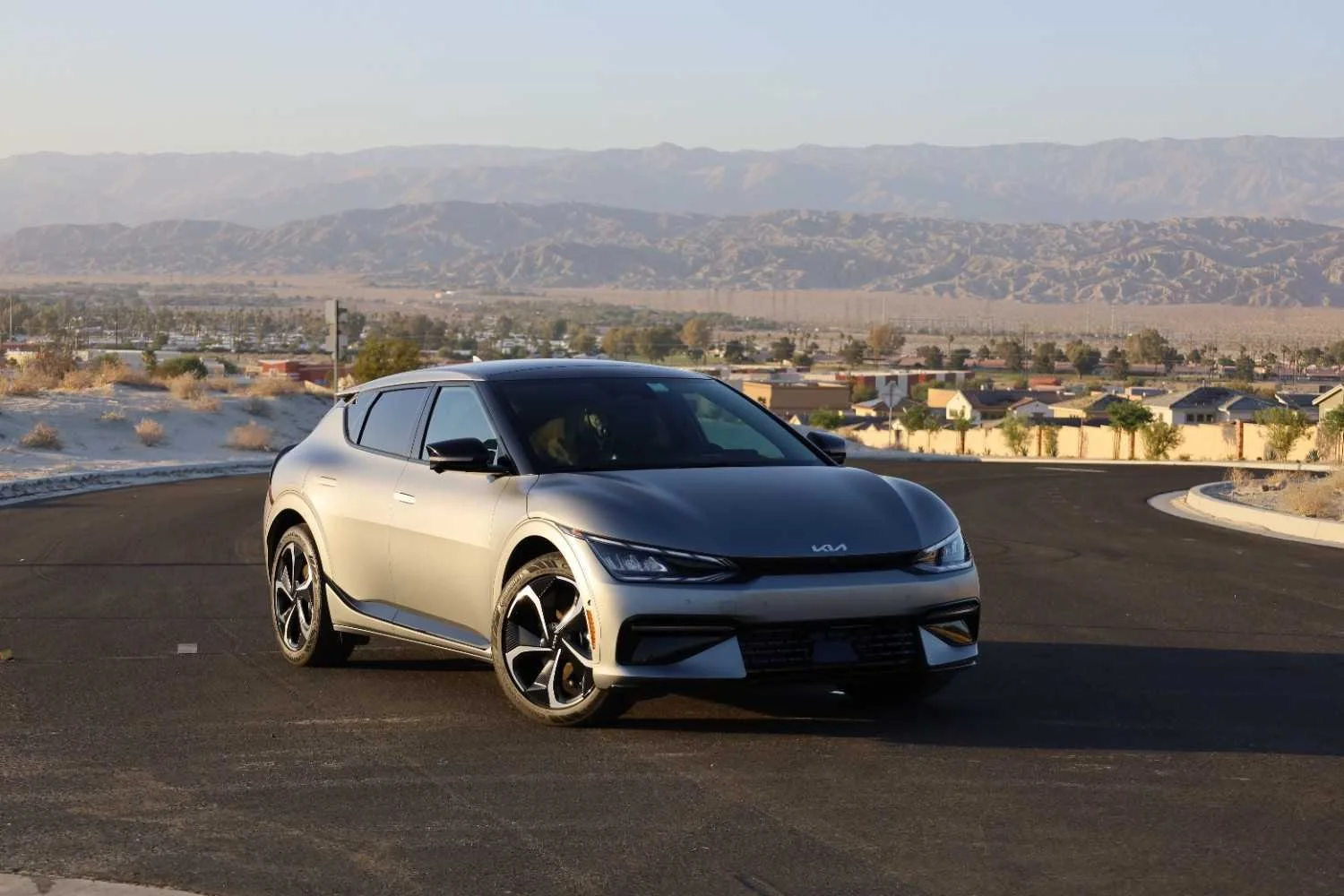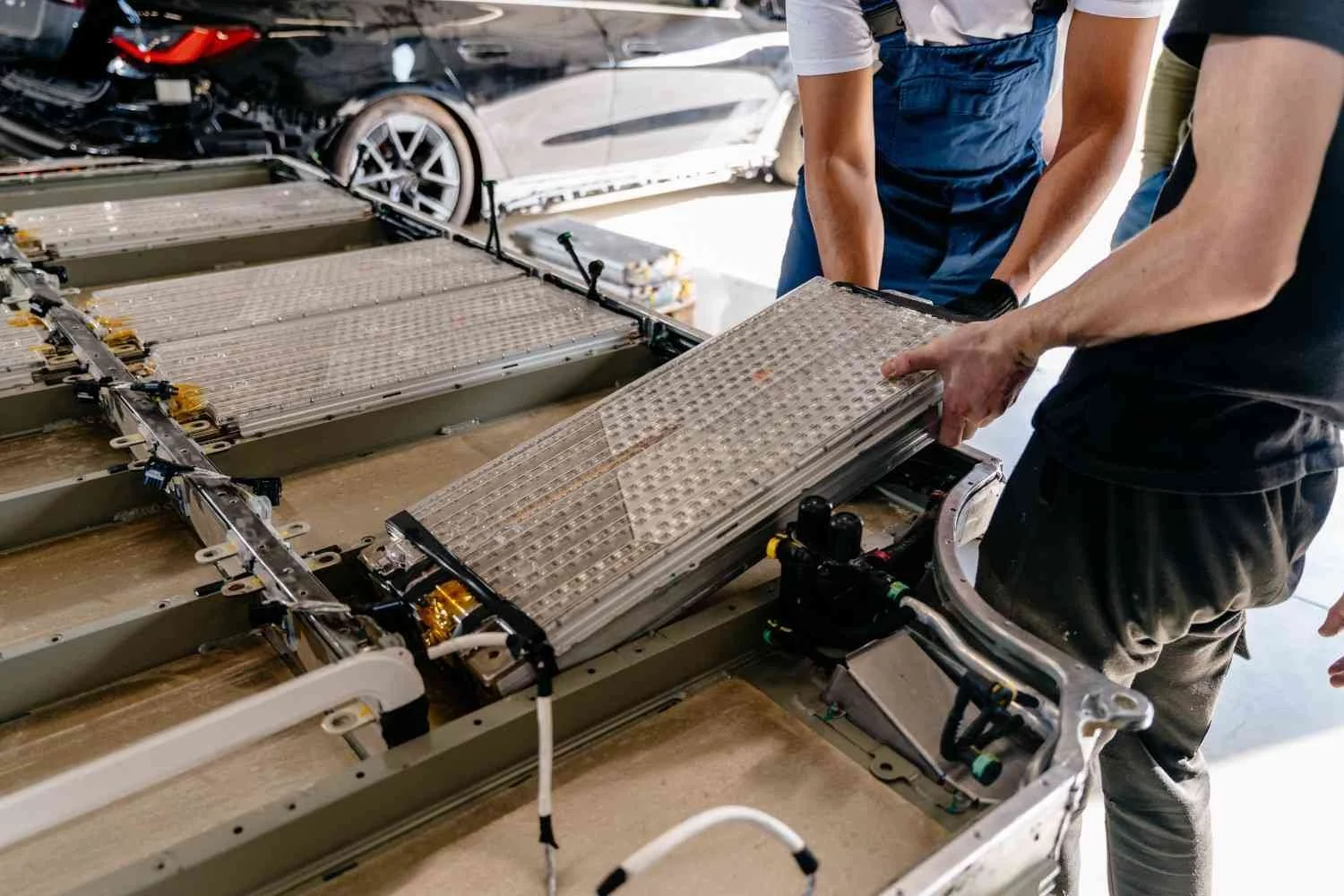The 2025 Budget in Plain English: ISAs, Pensions & Why EV Salary Sacrifice Still Delivers
Source: Shutterstock
With the UK Autumn Budget 2025 confirmed for Wednesday 26 November, Chancellor Rachel Reeves faces mounting pressure to balance the nation's books. The Office for Budget Responsibility's forthcoming forecast reveals deteriorating public finances, potentially by around £20 billion, driven by weak growth and significantly higher borrowing costs near a 27-year high. For the average person, this translates into a complex landscape of potential tax changes – but there's good news: electric car salary sacrifice schemes remain protected and can actually help offset many of the financial pressures ahead.
What's Likely to Change? Your Questions Answered
Your Savings: Will ISAs be Affected?
Cash ISA allowances face potential cuts from the current £20,000 to between £4,000 and £10,000, as the government attempts to redirect savings toward UK-listed equities rather than cash holdings. The Chancellor dismissed plans to reduce ISA allowances in July 2025, but pressure from banks wanting more investment in stocks and shares ISAs has brought the proposal back to the table.
What this means for you: If you're planning to maximise your Cash ISA contributions, doing so before the Budget could protect your position under current rules.
Your Pension: How will Tax Relief and Withdrawals Change Post-Budget?
One rumoured option includes eliminating higher-rate tax relief and introducing a flat rate of 25-30% for all taxpayers, which would help basic-rate taxpayers but significantly reduce benefits for higher earners. More concerningly, the tax-free lump sum cap could fall from £268,275 to just £100,000 - a change that has already prompted record numbers to withdraw their tax-free cash early.
What this means for you: Rumours suggest the government may review the NIC treatment of salary sacrifice pensions, though specifics remain unclear. Crucially, salary sacrifice for electric cars operates differently and remains unaffected by these pension-specific changes.
Will Your Inheritance Tax Increase?
Inheritance tax rules on gifting may be tightened, potentially extending the required survival period from seven to ten years for gifts to fall outside your estate. The nil rate band has remained frozen at £325,000 since 2009 and is set to stay at that level until 2030, with potential for further extension.
Property taxes, including potential reforms to stamp duty and council tax, are also under review.
Are Your Energy Bills About to Decrease?
The government may intervene to reduce household energy costs, potentially by scrapping the existing 5% VAT on energy or cutting back on regulatory charges currently included in energy bills. With inflation persistent at 3.8%, any relief on energy costs would be welcome news for households.
Will Fuel Become More Expensive?
The current fuel duty rate of 52.95 pence per litre, frozen since 2011, faces pressure to rise with inflation. Economists argue it's "long past time to raise fuel duty," though the government must balance revenue needs against the risk of higher inflation and reduced economic growth.
What this means for you: Rising fuel costs make alternative transport solutions - particularly electric vehicles through salary sacrifice - increasingly attractive from a cost perspective.
The Silver Lining: EV Salary Sacrifice Remains Protected
Here's the crucial point many people miss: whilst the Budget may tighten rules around pensions, ISAs, and other savings vehicles, electric car salary sacrifice schemes remain completely unaffected.
Why EV Salary Sacrifice Matters More Than Ever
With the 2025/26 Benefit-in-Kind rate at just 3%, employees using The Electric Car Scheme save 20-50% on a new electric car compared to traditional leasing. These savings come from:
Pre-tax deductions reducing your Income Tax liability
National Insurance savings for both employees and employers
Exceptionally low BiK rates for electric vehicles (just 3% compared to up to 37% for petrol/diesel vehicles)
How Does EV Salary Sacrifice Offset Budget Pressures?
Consider this scenario: If fuel duty rises and your Cash ISA allowance is cut, you face both higher transport costs and reduced tax-free savings options. However, switching to an electric car through salary sacrifice addresses both challenges:
Lower "fuel" costs: Charging an electric car at home costs a fraction of petrol prices, with potential annual savings of £600-£1,500
Tax-efficient transport: Your car payment comes from gross salary, effectively creating additional tax relief
Protection from fuel duty hikes: Electric vehicles are exempt from fuel duty entirely
Predictable monthly costs: Everything bundled into one pre-tax payment, including insurance, maintenance, and breakdown cover
Practical Steps to Take Now
The easiest way to protect your money from tax rises is to make use of all your allowances, including the £20,000 you can put in an ISA, £60,000 that can go into pensions, and the £500 that can be earned in dividends outside an ISA tax-free - whilst these allowances still exist in their current form.
However, don't panic. Changes may not be implemented immediately, so it's important not to rush decisions. You will usually have time to digest the changes and carefully consider how to respond.
Consider this strategic approach:
Maximise current allowances before potential reductions
Review your transport costs against electric vehicle alternatives
Calculate potential salary sacrifice savings using online calculators
Explore used electric car options for even greater affordability
Investigate workplace charging benefits if available
The Bigger Picture
The Spring Statement already revealed that welfare spending reductions, departmental spending cuts, and measures to reduce tax avoidance are helping the Chancellor meet fiscal rules. The Autumn Budget will likely build on this foundation, seeking additional revenue through wealth and property taxes rather than income-based measures.
For working people, this creates an environment where traditional savings vehicles face increasing restrictions, but targeted benefits - like EV salary sacrifice - remain not only protected but increasingly valuable.
Why The Electric Car Scheme Makes Sense in 2025/26
With the Budget potentially tightening multiple financial levers, The Electric Car Scheme offers a rare opportunity to:
Lock in significant savings unaffected by Budget changes
Reduce both tax and transport costs simultaneously
Access premium electric vehicles at dramatically reduced monthly costs
Benefit from Complete Employer Protection and market-leading service
The 3% BiK rate for 2025/26 represents exceptional value, and unlike other tax reliefs under scrutiny, it's confirmed for the coming year. For employees earning £30,000-£60,000, this could represent savings of £3,000-£8,000 annually compared to running a petrol car.
Smart Financial Planning in Uncertain Times
The Autumn Budget 2025 will undoubtedly bring changes that affect everyday finances. Whilst the specifics won't be known until 26 November, the direction is clear: traditional wealth and savings structures face increasing taxation.
Against this backdrop, electric car salary sacrifice stands out as a protected, tax-efficient benefit that delivers real financial value. By reducing both your tax liability and your transport costs, it provides a practical way to offset many of the Budget's potential impacts.
Ready to explore how much you could save? Get an instant quote to see how salary sacrifice could work for your circumstances - regardless of what the Budget brings.
FAQs
What changes are expected in the 2025 Autumn Budget?
The 2025 Autumn Budget, scheduled for 26 November, may include reductions to Cash ISA allowances from £20,000 to potentially £4,000-£10,000, changes to pension tax relief, and inheritance tax gifting rule extensions from seven to ten years. However, electric car salary sacrifice schemes remain completely unaffected by these changes, continuing to offer 20-50% savings through the 3% Benefit-in-Kind rate.
Will the 2025 Budget affect electric car salary sacrifice schemes?
No, electric car salary sacrifice schemes remain protected and unaffected by the 2025 Autumn Budget changes. With the Benefit-in-Kind rate at just 3% for 2025/26, employees can still save 20-50% on new electric cars through pre-tax salary deductions, National Insurance savings, and exceptionally low BiK rates compared to petrol and diesel vehicles.
How much can I save with EV salary sacrifice in 2025/26?
Through The Electric Car Scheme, employees typically save 20-50% compared to traditional car leasing. For those earning £30,000-£60,000, this could represent annual savings of £3,000-£8,000 compared to running a petrol car, with additional savings from lower charging costs (£600-£1,500 annually) and exemption from fuel duty increases.
What is the Benefit-in-Kind rate for electric cars in 2025/26?
The Benefit-in-Kind (BiK) rate for electric vehicles in 2025/26 is just 3%, significantly lower than the maximum 37% rate for high-emission petrol and diesel vehicles. This exceptionally low rate makes electric car salary sacrifice schemes highly tax-efficient for UK employees.
How will ISA allowances change in the 2025 Budget?
Cash ISA allowances may be reduced from the current £20,000 to between £4,000 and £10,000 as the government attempts to redirect savings toward UK-listed equities. While the Chancellor dismissed these plans in July 2025, pressure from banks has brought the proposal back for consideration in the November Budget.
Will pension tax relief change in the 2025 Autumn Budget?
Potential changes include eliminating higher-rate tax relief and introducing a flat rate of 25-30% for all taxpayers, which would benefit basic-rate taxpayers but reduce benefits for higher earners. The tax-free lump sum cap could also fall from £268,275 to just £100,000, though electric car salary sacrifice operates separately and remains unaffected by pension-specific changes.
Is fuel duty expected to increase after the 2025 Budget?
The current fuel duty rate of 52.95 pence per litre, frozen since 2011, faces pressure to rise with inflation. Economists argue it's overdue for an increase, making electric vehicles through salary sacrifice increasingly attractive as they're exempt from fuel duty entirely and cost significantly less to charge
How does EV salary sacrifice help offset Budget tax increases?
Electric car salary sacrifice addresses multiple financial pressures from Budget changes by providing lower "fuel" costs (£600-£1,500 annual savings), tax-efficient transport through pre-tax deductions, protection from fuel duty hikes, and predictable monthly costs including insurance and maintenance - all while remaining unaffected by ISA, pension, or inheritance tax changes.
Are you an employer?
BOOK A DEMOAre you an employee?
SEE AVAILABLE CARSYou might also like…
The information provided on this blog is for general informational purposes only and should not be construed as tax advice or accountancy services. We are not qualified accountants or tax advisors, and nothing on this site should be relied upon as professional advice tailored to your specific circumstances. Tax laws and regulations are complex and subject to change, and individual situations vary considerably. For specific guidance regarding your tax obligations, financial planning, or accounting matters, we strongly recommend that you consult with a qualified accountant, tax advisor, or other appropriate professional who can assess your particular situation. We accept no liability for any loss or damage arising from reliance on the content provided on this blog.
Last updated: 29/10/2025
Our pricing is based on data collected from The Electric Car Scheme quote tool. All final pricing is inclusive of VAT. All prices above are based on the following lease terms; 10,000 miles pa, 36 months, and are inclusive of Maintenance and Breakdown Cover. The Electric Car Scheme’s terms and conditions apply. All deals are subject to credit approval and availability. All deals are subject to excess mileage and damage charges. Prices are calculated based on the following tax saving assumptions; England & Wales, 40% tax rate. The above prices were calculated using a flat payment profile. The Electric Car Scheme Limited provides services for the administration of your salary sacrifice employee benefits. The Electric Car Scheme Holdings Limited is a member of the BVRLA (10608), is authorised and regulated by the FCA under FRN 968270, is an Appointed Representative of Marshall Management Services Ltd under FRN 667174, and is a credit broker and not a lender or insurance provider.
Copyright and Image Usage: All images used on this website are either licensed for commercial use or used with express permission from the copyright holders, in compliance with UK and EU copyright law. We are committed to respecting intellectual property rights and maintaining full compliance with applicable regulations. If you have any questions or concerns regarding image usage or copyright matters, please contact us at marketing@electriccarscheme.com and we will address them promptly.







